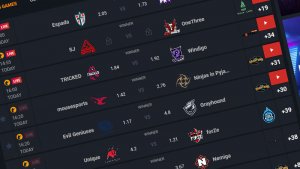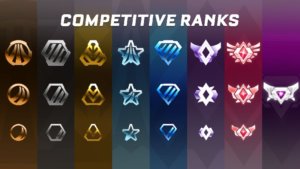It’s been over a decade since esports and fantasy sports rose to the top, becoming very lucrative. Both markets benefited from the advent of digitalization, helping them surpass the initial expectations and reach massive levels of success. Who wouldn’t want to invest some time and money in these?
They are both exciting, especially for sports fans all over the world. But esports and fantasy sports are very different. So, when it comes to Fantasy Sports vs Esports, which one prevails?

What are the Differences Between Fantasy Sports vs Esports
Esports, by definition, are a form of gaming in a competitive environment. This means that Esports feature human vs. human gameplay instead of human vs. AI.
Esports has gained a lot of popularity in the past few years, becoming one of the fastest-growing industries in the process. With an estimated worth of near $1 billion, estimated to have a 60% increase by 2024, Esports is undoubtedly the future of entertainment.
Then there are fantasy sports. Unlike real-life and Esports, fantasy sports have nothing to do with participating in competitive sports. Fantasy sports consists of the manager (that’s you) compiling their team with real-life players.
According to the performance of the players, their prices might rise or plummet. Your team’s goal is to rank higher than the other managers’ teams. Your success doesn’t depend on your picking skills but on other external factors that you can’t control.
A more popular subcategory of fantasy sports is daily fantasy sports (or DFS for short). Some of the best DFS sites are worth millions and secure huge deals with TV sports channels (like DraftKings’ exclusivity deal with ESPN).
What about Fantasy Esports?
There is also fantasy esports. These are similar to fantasy sports, but instead of creating fantasy teams for sports like football and basketball, your team consists of professional esports players.
DFS and fantasy esports are very similar as well. The better your team performs, the more points you get, and the more money you earn. But fantasy sports and fantasy esports leagues last for entire seasons. DFS leagues last a maximum of 2-3 days, with most lasting one day, increasing excitement levels to 100%
[ctabu id=2235 type=cta]Are there any other differences between esports and virtual sports?
DFS and esports have a few distinct differences, despite being two of the most lucrative markets today. For example, most of the money is made in the Esports industry through streaming the game, advertisements, and selling in-game items.
DFS giants make most of their income when players pay to take part in leagues and commissions on prize money.
The most significant difference between fantasy sports, DFS, and esports are the skills needed. Both fantasy sports and DFS require skill since you will need to manage your budget while picking the best players.
But luck also plays a massive part in whether you’ll win points or not. And while some leagues don’t require you to add any money to play, most players find more excitement in finding those that do.
Skills and Luck
So, doesn’t this make fantasy sports, especially DFS, gambling? Well, yes, DFS is a form of gambling.
On the contrary, Esports depends solely on the skills of the players. There’s no luck involved. Esports players spend hours perfecting their craft, which is rewarded when/if they win.
The DFS industry has also faced much scrutiny lately when it comes to its communication with its fans. The DFS giants, like FanDuel and DraftKings, have just recently started educating their audience on the skills needed to beat other managers.
So, fantasy sports vs. esports? Gambling vs. pure skill? The choice is yours.


















